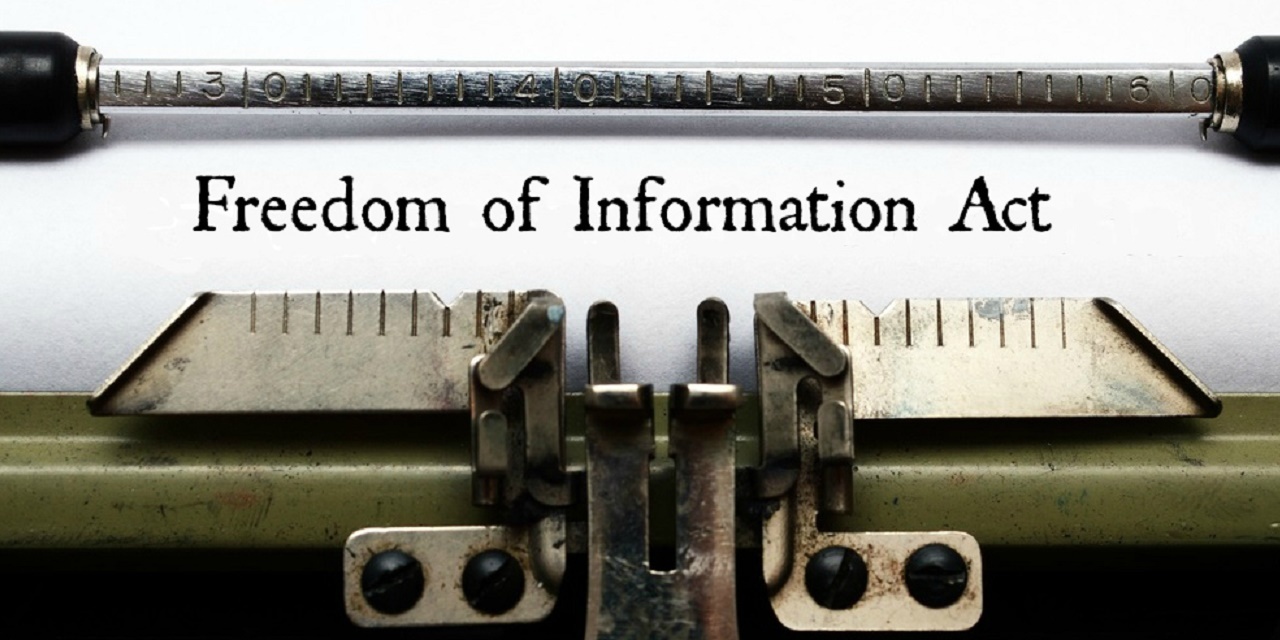HOUSTON – The American Civil Liberties Union of Texas has filed a lawsuit in district court against the U.S. Customs and Border Protection (CBP) and the U.S. Department of Homeland Security (DHS) for allegedly failing to provide documents or respond to Freedom of Information Act (FOIA) requests filed back in February.
The requests were filed following the Jan. 27 executive order signed by President Donald Trump. That order was the catalyst for mass protests at airports across the nation and was found by a federal judge in New York to be in violation of the rights of due process and equal protection. Both rights are guaranteed in the U.S. Constitution.
The new set of lawsuits were filed in 13 states by the ACLU, which says it previously requested information from local CBP offices, including Texas.
According to the suit filed in the Houston Division of the Southern District of Texas, the information requested by the ACLU includes “records concerning CBP’s local implementation of President Trump’s Jan. 27, 2017, executive order titled Protecting the Nation From Foreign Terrorist Entry Into the United States.” The suit also requests any other judicial orders or executive directives issued in relation to the executive order on or after Jan. 27.
In Texas, the ACLU is seeking records relating to the implementation of the order at sites that fall within the jurisdiction of the CBP’s Houston Field Office. Those sites include Dallas/Fort Worth International Airport (DFW), Bush Intercontinental Airport, and the Houston Airport. It also includes operations at the Port of Entry Offices in the region.
The ACLU says it requested records from the field offices of the CBP in its FOIA request on Feb. 6. The CBP responded, requesting an additional 10 business days in order to respond. According to the ACLU, the CBP has still failed to produce the records or to produce a reason not to release them, even though more than 30 business days have elapsed since the request was filed.
In the filing, the ACLU reminds the court that beginning Jan. 28, CBP officers at DFW began detaining travelers pursuant to the aforementioned executive order. More than a dozen people were detained on that day, with at least nine of those held in excess of 24 hours, the ACLU claims.
“Attorneys who tried to assist the detained individuals throughout Saturday and Sunday were consistently denied access by CBP officials,” says the ACLU in its suit. The group also alleges that detained travelers were pressured into signing papers to voluntarily leave the country.
The case also details individual passengers, such as a 33-year-old man from Iraq who traveled to the U.S. with a Special Immigrant Visa he received after working with the U.S. Military. He was detained for more than 12 hours. There was also a family with children ages 1 and 3 detained, and that their father was an interpreter for the U.S. army.
This isn’t the first time that the ACLU has made note of the CBP’s failure to respond to FOIA requests. In fact, a letter dated July 20, 2016, from the ACLU to Commissioner R. Gil Kerlikowski of the CBP, was filled with recommendations appropriate handling of FOIA requests. The letter was co-authored by Karin Johanson, director, and Chris Rickerd, policy counsel for the ACLU.
According to that letter, FOIA requests often receive no response from the CBP. When the CBP does respond, it allegedly often claims no records exist, or if records are produced, they contain unlawful redactions.
“CBP has an above-average rate of request denials based on claims that no responsive records exist: over one-third of requests generate this response,” writes the ACLU. “Yet, it has been the ACLU’s experience that when such denials are administratively appealed, records responsive to the original request are located.”
“CBP has the highest number of complete reversals/remands of all DHS components,” asserts the ACLU.
The ACLU notes in the letter that of 1,735 FOIA appeals submitted to the CBP during fiscal year 2015, 622 were completely reversed and 150 partially reversed or remanded on appeal with instructions to FOIA officers to provide the originally requested information.
“CBP has a long history of ignoring its obligations under the federal Freedom of Information Act – a law that was enacted to ensure that Americans have timely access to information of pressing public concern,” said Mitra Ebadolahi, border litigation project staff attorney with the ACLU of San Diego and Imperial Counties in a statement released by the organization. “The public has a right to know how federal immigration officials have handled the implementation of the Muslim bans, especially after multiple federal courts have blocked various aspects of these executive orders.”
The suit requests that CBP and DHS immediately disclose the requested records, and that they make copies of those records immediately available to the ACLU. The group also requests that the government pay any reasonable attorney’s fees and costs. Edgar Saldivar and Kali Cohn filed on behalf of the ACLU Foundation of Texas. Cohn is still pending admission to practice in the Southern District.
